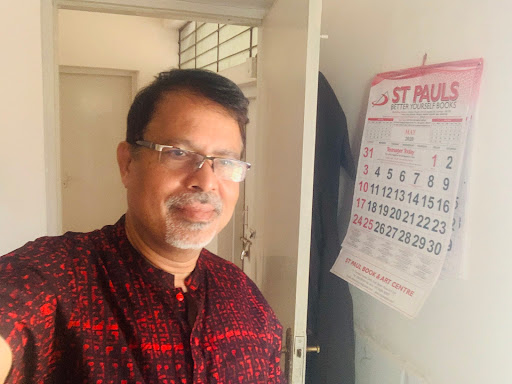 John Corriveau in his address to the friars at the Convention on the
Post-Novitiate insisted that much greater importance must be given to the
accompaniment of formators and spiritual directors. Mentors or Accompaniers “are those who are appropriately depended upon for
authoritative guidance at the time of the development of critical thought and
the formation of an informed, adult, and committed faith.”
John Corriveau in his address to the friars at the Convention on the
Post-Novitiate insisted that much greater importance must be given to the
accompaniment of formators and spiritual directors. Mentors or Accompaniers “are those who are appropriately depended upon for
authoritative guidance at the time of the development of critical thought and
the formation of an informed, adult, and committed faith.” Hence, a concrete suggestion would be that each student in formation
finds someone in the Province who will accompany him on his journey. In
addition, adequately trained spiritual directors are a necessity. I would like
to suggest that at the initial stages we do away with the practice of the
Director also being the Spiritual Director and rather provide friars with
wisdom and experience to guide our young men in the journey to communion. Formation is different from education. As
mentioned earlier, this is a serious lacuna in our formation program. We have
professors but not formators. We have provided friars to teach with adequate
training in their field, but we have failed to provide the faculty with the
training to be formators. Commenting on the skills that a formator needs, Luisa
Saffiotti observes: Formators need
to form individuals for awareness and for dialogue, for openness to conversion.
They need to form for a healed, sustainable and robust capacity to be in
relationship and to build healthy intimacy – not just with a few close friends,
but with a community and with those who are different, transcending the rampant
individualism and impoverished relational capacity that are seriously hobbling
contemporary ministerial life (and life in society at large). They also need to
form for embracing all of creation, including one’s own embodied self, and for
personal and communal attention to the use of natural resources, to ecological
considerations, to health attained and maintained through moderate, judicious
use of resources. Moreover, they need to form at both individual and group
levels for transparency and accountability – essential dimensions of healthy
and transformative relationships that often are not sufficiently
Hence, a concrete suggestion would be that each student in formation
finds someone in the Province who will accompany him on his journey. In
addition, adequately trained spiritual directors are a necessity. I would like
to suggest that at the initial stages we do away with the practice of the
Director also being the Spiritual Director and rather provide friars with
wisdom and experience to guide our young men in the journey to communion. Formation is different from education. As
mentioned earlier, this is a serious lacuna in our formation program. We have
professors but not formators. We have provided friars to teach with adequate
training in their field, but we have failed to provide the faculty with the
training to be formators. Commenting on the skills that a formator needs, Luisa
Saffiotti observes: Formators need
to form individuals for awareness and for dialogue, for openness to conversion.
They need to form for a healed, sustainable and robust capacity to be in
relationship and to build healthy intimacy – not just with a few close friends,
but with a community and with those who are different, transcending the rampant
individualism and impoverished relational capacity that are seriously hobbling
contemporary ministerial life (and life in society at large). They also need to
form for embracing all of creation, including one’s own embodied self, and for
personal and communal attention to the use of natural resources, to ecological
considerations, to health attained and maintained through moderate, judicious
use of resources. Moreover, they need to form at both individual and group
levels for transparency and accountability – essential dimensions of healthy
and transformative relationships that often are not sufficiently  in
ministry and formation settings.
in
ministry and formation settings.
This prompts us to give serious thought to the friars we choose to
be the formators of our men in formation. What are the criteria we use to
select such men? From the above it is clear that intelligence should not be the
only or main criteria. We need men who are examples – they need not be perfect – of conversion and
truth-telling; men who are not afraid to reveal the truth about themselves, the
truth about their community, the truth about the world. These friars should be
adequately prepared with skills to guide the friars in formation come to know
themselves, accept themselves and change in direction of their self-proclaimed
religious values of charity, compassion and justice. They should also receive
training in how to invite the local community to understand its own relational
styles of authority, leadership and service.

No comments:
Post a Comment